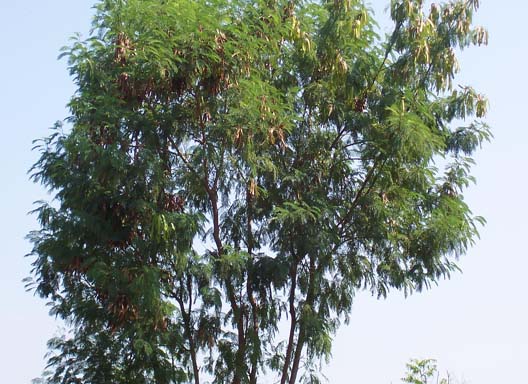 | ||||||||||
|
| Home | Seasons &
Varieties | Tillage
|
Nutrient Management | Irrigation
Management | Weed
Management | Crop Protection | Cost of Cultivation | | ||||||||||
|
Crop Production::Forage Crops::Fodder Cowpea |
||||||||||
|
PREPARATORY CULTIVATION 1. PLOUGHING Plough twice with an iron plough and 3 or 4 times with country plough to obtain good tilth. 2. APPLICATION OF FYM Apply and spread 25 t/ha of FYM or compost 3. FORMING RIDGES AND FURROWS Form ridges and furrows (using a ridger) 6 m along and 1 m apart and irrigation channels across the furrows. 4. APPLICATION OF FERTILIZER
5. SOWING a. Maintain a seed rate of 10 kg/ha for fodder and 1.25 kg for fuel. b. Seeds are hard and require scarification to obtain high and uniform germination. Scarification of seeds can be done by pounding the seeds with sand in mortar. Acid scarification can also be done by dipping the seeds in concentrated sulphuric acid for three minutes and washing thoroughly with tap water. Another easiest method is hot water treatment by soaking the seeds in hot water (80o C) for 4 minutes (boiling water removed from the flame and kept for 4 minutes comes down to 80o C). A still simpler method would be to bring water to boil (100o C) in a vessel, take it out of the flame and immediately pour it over the seeds and keep them for 3 to 4 minutes. Then, the hot water may be poured out and cold water added to steep the seeds over night. Seeds can also be simply soaked in plain water for 72 hrs before sowing. 6. IRRIGATION MANAGEMENT This may be done wherever the crop is raised under irrigation. Once established, this plant can withstand several months of dry weather. However, to ensure rapid seedling growth, the land should be adequately moist upto 5 - 6 months. In summer, irrigation once in 6 weeks is adequate. 7. HARVESTING Plant can be harvested as short as 6 months after planting. However, the initial cutting should not be done until the trunk has attained atleast 3 cm diameter or the plant has completed one seed production cycle. Harvests can be repeated once in 40 - 80 days depending upon growth and season. In drought prone areas, allow the trees to grow for two years to ensure deep root penetration before commencing harvest. The trees can be cut at 90 to 100 cm height from ground level. For poles and fuel, allow the tree to grow straight without cutting for 2.5 or 5 years as the case may be. 8. GREEN FODDER YIELD As green fodder under irrigated conditions, a pure crop yields about 80 to 100 t/ha of green fodder. Under rainfed conditions 40 t/ha of green fodder is obtained after 2 years of initial growth and pruning to a height of 100 cm.
|
||||||||||
|
Farmers
Association Publications FAQs Glossary Important Links Gallery Contacts |
||||||||||
|
| Home | Seasons & Varieties | Tillage | Nutrient Management | Irrigation Management | Weed Management | Crop Protection | Cost of Cultivation | Gallery | FAQs | Contact | © All Rights Reserved. TNAU-2013. | ||||||||||
